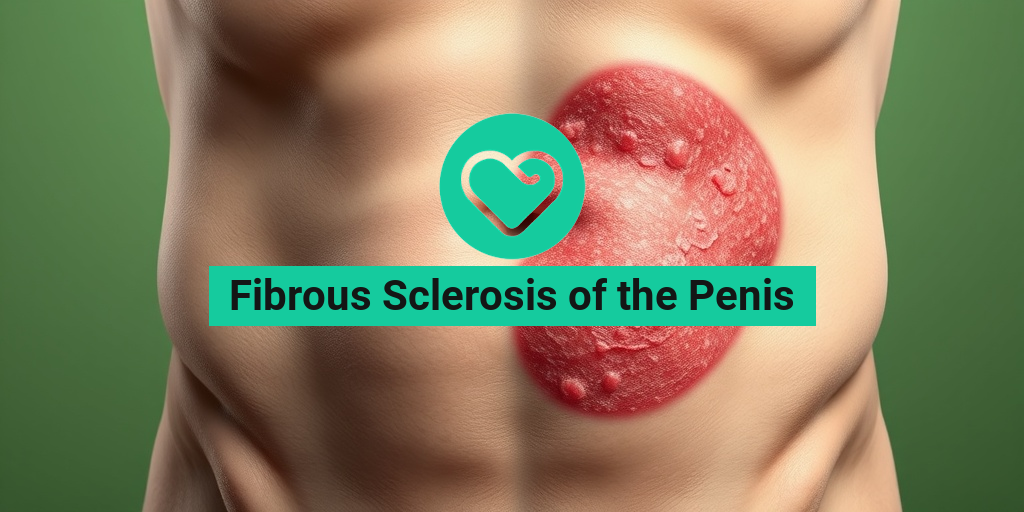What Is Fibrous Sclerosis of the Penis?
Fibrous Sclerosis of the Penis, often referred to as Peyronie’s disease, is a condition characterized by the development of fibrous scar tissue inside the penis. This condition can lead to a variety of complications, including painful erections, curvature of the penis, and difficulties with sexual intercourse. Understanding this condition is crucial for those affected, as it can significantly impact both physical health and emotional well-being.
Understanding the Causes
The exact cause of Fibrous Sclerosis of the Penis remains unclear, but several factors may contribute to its development:
- Trauma or Injury: Physical trauma to the penis, whether from sexual activity or injury, can lead to scar tissue formation.
- Genetic Factors: Some individuals may have a genetic predisposition to developing this condition.
- Age: The risk of developing fibrous sclerosis increases with age, particularly in men over 40.
- Connective Tissue Disorders: Conditions that affect connective tissue may also play a role.
While these factors can contribute to the onset of Fibrous Sclerosis, it’s essential to consult a healthcare professional for a proper diagnosis and treatment plan.
Fibrous Sclerosis Symptoms
Recognizing the symptoms of Fibrous Sclerosis of the Penis is vital for early intervention and management. Symptoms can vary in severity and may include:
1. Curvature of the Penis
One of the most noticeable symptoms is a significant curvature of the penis during erection. This curvature can make sexual intercourse difficult and may lead to emotional distress.
2. Painful Erections
Many men with this condition experience pain during erections. This discomfort can range from mild to severe and may deter individuals from engaging in sexual activity.
3. Presence of Plaques
Fibrous plaques may develop under the skin of the penis, which can be felt as hard lumps. These plaques are a direct result of the scar tissue formation and can contribute to the curvature and pain.
4. Changes in Penile Size
Some men may notice a decrease in penile length or girth due to the presence of scar tissue. This change can further impact self-esteem and sexual confidence.
5. Erectile Dysfunction
In some cases, Fibrous Sclerosis can lead to erectile dysfunction, making it challenging to achieve or maintain an erection. This symptom can significantly affect a man’s quality of life and relationships.
When to Seek Help
If you experience any of these symptoms, it’s important to consult a healthcare professional. Early diagnosis and treatment can help manage the condition effectively and improve your quality of life. Don’t hesitate to reach out to a specialist who can provide tailored advice and treatment options.
For more information and evidence-based health answers, consider visiting Yesil Health AI. They offer valuable resources that can help you understand your health better.
In conclusion, Fibrous Sclerosis of the Penis is a condition that can have profound effects on a man’s sexual health and emotional well-being. By recognizing the symptoms and seeking timely medical advice, individuals can take proactive steps towards managing this condition effectively. Remember, you are not alone, and help is available! 🌟

Fibrous Sclerosis Causes
Fibrous Sclerosis of the Penis, also known as Peyronie’s disease, is a condition characterized by the formation of fibrous scar tissue inside the penis, leading to curved, painful erections. Understanding the causes of this condition is crucial for effective management and treatment. While the exact cause remains unclear, several factors have been identified that may contribute to its development.
Trauma or Injury
One of the most commonly cited causes of fibrous sclerosis is trauma or injury to the penis. This can occur during sexual activity, vigorous physical activity, or accidents. Such injuries may lead to localized bleeding and inflammation, which can trigger the formation of scar tissue. Even minor injuries that go unnoticed can contribute to the development of this condition over time.
Genetic Predisposition
Research suggests that genetics may play a role in the development of fibrous sclerosis. Individuals with a family history of Peyronie’s disease may be at a higher risk. Certain genetic markers have been associated with an increased likelihood of developing this condition, indicating that hereditary factors could influence its onset.
Connective Tissue Disorders
People with connective tissue disorders, such as Dupuytren’s contracture or Ledderhose disease, may also be more susceptible to fibrous sclerosis. These conditions involve abnormal collagen formation, which can lead to the development of fibrous tissue in various parts of the body, including the penis. If you have a history of such disorders, it’s essential to discuss this with your healthcare provider.
Age and Hormonal Changes
As men age, the risk of developing fibrous sclerosis increases. Hormonal changes, particularly a decrease in testosterone levels, may contribute to the condition. Older men are more likely to experience changes in the elasticity of penile tissue, making them more vulnerable to the development of scar tissue.
Other Medical Conditions
Several medical conditions have been linked to fibrous sclerosis, including:
- Diabetes: Men with diabetes are at a higher risk due to potential vascular and nerve damage.
- Hypertension: High blood pressure can affect blood flow and contribute to tissue changes.
- Hyperlipidemia: Elevated cholesterol levels may also play a role in the development of fibrous tissue.
Fibrous Sclerosis Risk Factors
Understanding the risk factors associated with fibrous sclerosis can help in early identification and intervention. While some factors are beyond control, others can be managed to reduce the likelihood of developing this condition.
Age
As mentioned earlier, age is a significant risk factor. The incidence of fibrous sclerosis increases with age, particularly in men over 40. Regular check-ups and discussions about sexual health become increasingly important as men age.
Family History
If you have a family history of Peyronie’s disease or other connective tissue disorders, your risk may be elevated. It’s advisable to inform your healthcare provider about your family medical history to assess your risk accurately.
Previous Penile Surgery
Men who have undergone penile surgery or procedures may be at a higher risk of developing fibrous sclerosis. Surgical interventions can lead to scarring and changes in the tissue, which may predispose individuals to this condition.
Smoking and Alcohol Use
Both smoking and excessive alcohol consumption have been linked to various health issues, including vascular problems. These lifestyle choices can impair blood flow and contribute to the development of fibrous tissue. Quitting smoking and moderating alcohol intake can significantly improve overall health and reduce the risk of fibrous sclerosis.
Psychological Factors
Stress and anxiety can also play a role in the development of fibrous sclerosis. Psychological factors may lead to changes in sexual function and contribute to the physical manifestations of the disease. Seeking support for mental health can be beneficial for those at risk.
In conclusion, while the exact causes of fibrous sclerosis of the penis remain somewhat elusive, understanding the potential triggers and risk factors can empower individuals to take proactive steps in managing their health. If you suspect you may be experiencing symptoms, consulting a healthcare professional is essential for proper diagnosis and treatment. 🩺

Fibrous Sclerosis Diagnosis
Diagnosing Fibrous Sclerosis of the Penis can be a complex process, as it often mimics other conditions. This condition, characterized by the formation of fibrous tissue in the penis, can lead to pain, curvature, and erectile dysfunction. Early diagnosis is crucial for effective management and treatment.
Symptoms to Watch For
Patients may experience a variety of symptoms that can signal the presence of fibrous sclerosis. Common symptoms include:
- Pain during erections – This can be a significant indicator of underlying issues.
- Curvature of the penis – A noticeable bend can develop, often causing distress.
- Difficulty achieving or maintaining an erection – This can impact sexual health and overall quality of life.
- Palpable plaques – Hard lumps may be felt under the skin of the penis.
Consultation and Physical Examination
If you suspect you have Fibrous Sclerosis of the Penis, the first step is to consult a healthcare professional. During the consultation, the doctor will:
- Take a detailed medical history, including any symptoms you’ve experienced.
- Perform a physical examination to check for plaques or abnormalities.
- Discuss any potential risk factors, such as previous trauma or genetic predispositions.
Diagnostic Tests
In some cases, additional tests may be necessary to confirm the diagnosis. These can include:
- Ultrasound – This imaging test can help visualize the fibrous tissue and assess blood flow.
- Penile Doppler Study – This test evaluates blood flow and can help determine the severity of erectile dysfunction.
- Biopsy – In rare cases, a small tissue sample may be taken to rule out other conditions.
Fibrous Sclerosis Treatment Options
Once diagnosed, the next step is to explore treatment options for Fibrous Sclerosis of the Penis. The choice of treatment often depends on the severity of the condition and the symptoms experienced by the patient.
Non-Surgical Treatments
For many patients, non-surgical treatments can provide relief and improve symptoms. These options include:
- Medications – Oral medications or injections may help reduce pain and improve erectile function.
- Physical therapy – Specialized exercises can help improve flexibility and reduce discomfort.
- Vacuum erection devices – These can assist in achieving and maintaining an erection.
Surgical Options
If non-surgical treatments are ineffective, surgical intervention may be considered. Surgical options include:
- Plaque excision – This involves removing the fibrous tissue to restore normal function.
- Penile prosthesis implantation – This option is typically reserved for severe cases of erectile dysfunction.
- Penile lengthening procedures – These can help address curvature and restore length.
Alternative Therapies
Some patients may explore alternative therapies to complement their treatment. These can include:
- Acupuncture – Some studies suggest it may help with pain management.
- Herbal supplements – Always consult a healthcare provider before trying these, as they can interact with medications.
Importance of Follow-Up Care
Regular follow-up appointments are essential for monitoring the condition and adjusting treatment as necessary. This ongoing care can help manage symptoms effectively and improve overall quality of life. Remember, early intervention can lead to better outcomes, so don’t hesitate to seek help if you experience symptoms of Fibrous Sclerosis of the Penis. 🩺

Fibrous Sclerosis and Sexual Health
Fibrous Sclerosis of the Penis, also known as Peyronie’s disease, is a condition that can significantly impact a man’s sexual health and overall quality of life. This condition is characterized by the formation of fibrous scar tissue inside the penis, which can lead to curvature, pain, and difficulties during erections. Understanding the implications of fibrous sclerosis on sexual health is crucial for those affected and their partners.
Understanding the Impact on Sexual Function
The presence of fibrous tissue can alter the shape of the penis, leading to various sexual dysfunctions. Some of the common issues include:
- Painful Erections: Many men experience discomfort or pain during erections, which can deter sexual activity.
- Difficulty Achieving Erection: The curvature and fibrous tissue can make it challenging to maintain an erection, leading to frustration and anxiety.
- Reduced Sexual Satisfaction: The physical changes can affect both partners’ sexual experiences, potentially leading to decreased intimacy.
Emotional and Psychological Effects
Beyond the physical symptoms, fibrous sclerosis can also take a toll on mental health. Men may experience feelings of embarrassment, anxiety, or depression due to their condition. Open communication with partners and seeking support can be vital in managing these emotional challenges. 💔
Importance of Seeking Help
If you suspect you have fibrous sclerosis of the penis, it’s essential to consult a healthcare professional. Early diagnosis and intervention can help mitigate the effects on sexual health and improve overall well-being. Don’t hesitate to reach out for help; addressing these concerns can lead to better outcomes and a more fulfilling sexual life. 🩺
Fibrous Sclerosis Management Strategies
Managing fibrous sclerosis of the penis involves a combination of medical treatments, lifestyle changes, and psychological support. Here are some effective strategies to consider:
Medical Treatments
There are several treatment options available for fibrous sclerosis, depending on the severity of the condition:
- Medications: Oral medications, such as potassium para-aminobenzoate, may help reduce pain and curvature.
- Injections: Collagenase injections can break down the fibrous tissue, potentially improving curvature and pain.
- Surgery: In severe cases, surgical options may be considered to correct the curvature and restore function.
Lifestyle Modifications
In addition to medical treatments, certain lifestyle changes can support overall sexual health:
- Healthy Diet: A balanced diet rich in fruits, vegetables, and whole grains can improve blood flow and overall health.
- Regular Exercise: Physical activity can enhance circulation and reduce stress, which may positively impact sexual function.
- Avoiding Tobacco and Excessive Alcohol: Both can negatively affect erectile function and overall health.
Psychological Support
Addressing the emotional aspects of fibrous sclerosis is equally important. Consider the following:
- Therapy: Speaking with a mental health professional can help manage anxiety and depression related to sexual health.
- Support Groups: Connecting with others who have similar experiences can provide comfort and understanding.
- Open Communication: Discussing feelings and concerns with your partner can strengthen your relationship and improve intimacy.
In conclusion, while fibrous sclerosis of the penis can pose challenges to sexual health, various management strategies can help improve quality of life. By seeking appropriate medical care, making lifestyle changes, and addressing emotional well-being, individuals can navigate this condition more effectively. Remember, you are not alone, and support is available! 💪

Frequently Asked Questions about Fibrous Sclerosis of the Penis
What is Fibrous Sclerosis of the Penis?
Fibrous Sclerosis of the Penis is a condition characterized by the formation of fibrous tissue in the penile shaft, which can lead to pain, curvature, and difficulties during sexual intercourse. It is often associated with other conditions such as Peyronie’s disease.
What are the symptoms of this condition?
- Pain during erections
- Curvature of the penis
- Difficulty with sexual intercourse
- Changes in penile size or shape
What causes Fibrous Sclerosis of the Penis?
The exact cause of Fibrous Sclerosis of the Penis is not fully understood. However, it may be related to trauma, genetic factors, or other underlying health conditions. In some cases, it can develop after penile surgery or injury.
How is Fibrous Sclerosis diagnosed?
Diagnosis typically involves a physical examination and a review of the patient’s medical history. In some cases, imaging tests may be conducted to assess the extent of the fibrous tissue.
What are the treatment options available?
- Medications to reduce pain and inflammation
- Injections to break down fibrous tissue
- Surgery in severe cases to correct curvature or remove fibrous tissue
- Physical therapy to improve flexibility and function
Can Fibrous Sclerosis of the Penis affect fertility?
While Fibrous Sclerosis of the Penis primarily affects penile function, it does not directly impact fertility. However, the associated pain and discomfort may affect sexual activity, which could indirectly influence fertility.
Is there a risk of complications?
Yes, complications can arise from Fibrous Sclerosis of the Penis, including persistent pain, erectile dysfunction, and psychological effects such as anxiety or depression due to changes in sexual function.
How can I manage the condition at home?
Home management strategies may include:
- Warm baths to relieve discomfort
- Over-the-counter pain relievers to manage pain
- Gentle stretching exercises to maintain flexibility
When should I see a doctor?
If you experience symptoms such as significant pain, curvature, or changes in sexual function, it is important to consult a healthcare professional for evaluation and potential treatment options.
Are there any lifestyle changes that can help?
Maintaining a healthy lifestyle can support overall penile health. Consider:
- Regular exercise to improve blood circulation
- A balanced diet rich in vitamins and minerals
- Avoiding smoking and excessive alcohol consumption
Can Fibrous Sclerosis of the Penis be prevented?
While there is no guaranteed way to prevent Fibrous Sclerosis of the Penis, minimizing trauma to the genital area and managing underlying health conditions may reduce the risk of developing this condition.
Where can I find more information?
For more information, consider consulting a urologist or a healthcare provider specializing in sexual health. They can provide personalized advice and resources tailored to your needs.




